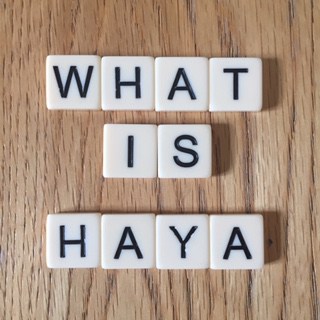What is Haya? The Concept of Total Protection

Be Shy of Allah Almighty
O People, be shy before Allah Almighty as He merits
The Prophet (peace be upon him) said, ‘Be truly shy from Allah.’
The companions said, ‘O Messenger of Allah, praise and thanks be to Allah, we are shy from Him.’
Upon which he replied, ‘It is not that I mean. Being truly shy from Allah means that you preserve your head and what it comprehends (your thoughts, ideas, creed, religion…) and preserve your belly and what it contains (your source of livelihood should be lawful). Moreover, you should remember death and rottenness. He who seeks the Hereafter should abandon the adornments of this worldly life. Whoever does that is shy, i.e., truly shy from Allah.’ (Tirmidhi)
What is shyness from Allah?
Shyness or haya has three dimensions. To achieve true haya we need to follow the advice of the Prophet (peace be on him) as he narrated in this sound hadith and many similar narrations.
- Protecting the Head and All It Contains
- True Tawheed – Your forehead should not prostrate to anyone but Allah Almighty.
- Your faculties – Your eyes, ears and tongue must be controlled. Allow them only to do what is permissible and what pleases Allah Almighty.
Worship Allah and keep your thoughts away from what is haram. Watching, listening and speaking in accordance with shariah is the firewall that protects you from any invasion from the shaytan, as well as the delusion of the dunya around you.
- Protect your Stomach
- Eat what is halal
- Your source of income has to be halal
- Your limbs – hands, feet, and private parts must only engage in what is halal
What is inside your stomach has a big effect on your spiritual state, your salah and supplications. Do NOT underestimate the effect of what you put inside your stomach.
Protect your stomach from haram. The stomach is the factory which supplies energy to the rest of the body, and feeds all your organs, your limbs, your hands, your feet. This makes the hadith comprehensive, because it covers all aspects of our body and dealings.
Those who fast in Ramadan, but break their fast with haram food or drink, or for example, return to drinking wine on Eid have completely misunderstood.
When one of the companions asked the Prophet (peace be upon him), ‘How do I become a person of an accepted supplication?’ And the Prophet (peace be upon him) replied, ‘Ya Saad, eat the halal and tayyab then your supplications will be accepted.’
Live by your belief: your lifestyle has to be halal not just what you put inside you but what you live off. And also protect yourself from zina.
- Remember the Final Destination
Death and decay is reality for everyone. We cannot escape the fact that one day we will be in our grave, so prepare for then by distancing yourself from the vanity of dunya.
It is a sin to forsake the dunya entirely, or lock yourself away. We have to live life, but forsake the vanity of the world. Do not be consumed by the endless needs of dunya and the pleasures of the dunya. But be balanced.
Entertain yourself in a halal way, with your family and friends, bearing in mind that it’s a journey and it will finish when we die. Like the announcement at the end of the journey, ‘All change please’ we will start a new life after our death.
May we achieve true shyness from Allah Almighty. Ameen
Khutbah delivered by Shaykh Haytham Tamim
Transcribed by Sana Zuberi
For your weekly dose of wisdom, subscribe to the Living Qur’an. First Month Free.
The Khutbah Project
An initiative to involve our young volunteers in learning and spreading their deen through transcribing khutbahs.
If you would like to be involved, please contact: ayesha.khan@utrujj.org
Recommended Posts

The truth is more powerful than lies
July 26, 2024

Does a bride’s wali have to be Muslim?
July 25, 2024

